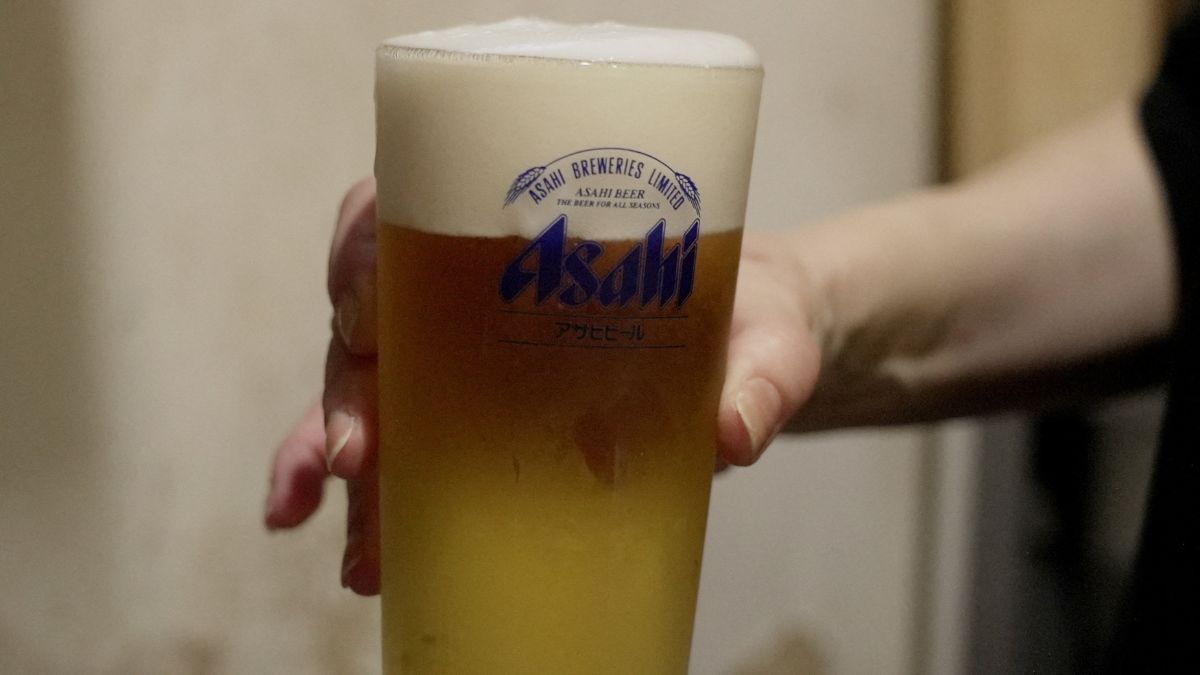Japan’s most popular beer brand, Asahi Super Dry, is facing a large-scale cyberattack that has paralysed domestic operations of Asahi Group Holdings, leaving production facilities offline and distribution networks shut down.
With breweries idle for several days and no timeline for restoration, shelves across the country are expected to soon run empty, creating one of the most severe supply disruptions in Japan’s drinks industry in recent memory.
Why Asahi beer is going to run out in Japan
The Asahi Group confirmed earlier this week that it had suffered a cyberattack which triggered a “system failure” across its Japan-based operations.
This technical disruption immediately halted orders, deliveries, and customer service functions. The company stated, “We are actively investigating the cause and working to restore operations; however, there is currently no estimated timeline for recovery.”
Most of the company’s 30 domestic plants have been unable to operate since Monday, according to company disclosures.
While the brewer has attempted to identify the scope of the damage, it remains unclear how many facilities have been directly affected, reported Reuters.
At present, the issue is limited to Japan, with Asahi stressing that international businesses, particularly in Europe where it owns global brands, remain unaffected.
The company has also suspended its call centrr operations. In a statement, Asahi confirmed there had been no “confirmed leakage of personal information of customer data.”
However, it acknowledged the seriousness of the attack and apologised to its customers and business partners.
How Asahi beer shortage is impacting retailers
Convenience store chain Lawson, one of Japan’s biggest distributors of packaged goods, issued a statement cautioning that “it is possible that some of these products may become increasingly out of stock from tomorrow onwards.”
An executive at another large retail group gave an even starker warning, saying, “This is having an impact on everyone. I think we will run out of products soon. When it comes to Super Dry, I think we’ll run out in two or three days at supermarkets and Asahi’s food products within a week or so.”
Editor’s Picks
Supermarkets, convenience stores, and izakaya pubs are bracing for shortages, reported The Financial Times.
Industry insiders suggest that demand may shift temporarily toward rival brands produced by companies such as Kirin and Suntory. But experts also point out that loyalty to Asahi Super Dry, known for its crisp taste, means many drinkers will not easily switch.
How Asahi is a heritage brand in Japan
Asahi has a long history in Japan’s drinks market. Founded in 1889, the company released its first bottled draft beer in 1900 under the leadership of Komakichi Torii.
Over the decades, it grew from a local brewery into a global drinks empire, exporting its products and acquiring international brands.
Its signature Asahi Super Dry, introduced in the late 20th century, quickly became Japan’s best-selling beer and a staple at supermarkets, restaurants, and izakaya pubs.
Today, it is a symbol of modern Japanese brewing.
Beyond beer, Asahi produces an array of other beverages, including non-alcoholic drinks and whisky brands such as Nikka. It also manufactures baby food and produces own-brand products for major Japanese retailers.
Yet the domestic market has been increasingly challenging in recent years. Japan’s younger generations are drinking less alcohol, leading to declining beer sales across the country.
To address this, Asahi has sought to diversify. Chief executive Atsushi Katsuki said in 2024 that the company aimed to double the share of low- and no-alcohol beverages to 20 per cent of its total beverage sales in the coming years.
What the numbers say
Asahi Group is the dominant player in Japan’s beer market and also one of the largest beverage companies globally.
Based on its 2024 sales figures, the company produces the equivalent of 6.7 million large bottles of beer daily in Japan. About half of its overall sales revenue comes from the domestic market.
The interruption of its production line and distribution systems therefore represents a major financial setback. Its shares fell by 2.6 per cent on Thursday following the news of the cyberattack.
The crisis has already forced Asahi to postpone the launch of eight new products, ranging from soft drinks such as fruit soda and lemon-flavoured ginger ale to health-oriented offerings like protein bars.
These had been scheduled to debut this autumn but are now delayed indefinitely.
On Wednesday, the company trialled a paper-based manual system to process orders and deliveries on a small scale.
While this shows an attempt to restart operations, it remains uncertain whether such methods can be scaled up effectively to meet nationwide demand.
While Japan struggles with the outage, Asahi’s overseas businesses continue unaffected. The group owns some of the most recognised European beer brands, including Peroni Nastro Azzurro, Grolsch, Pilsner Urquell, and Fuller’s in the UK.
These brands are brewed and distributed independently of Japanese operations.
In the UK alone, Asahi owns Fuller’s brewery in West London, which produces London Pride, cider under the Cornish Orchards label, and craft beers under Dark Star.
How cyberattacks are a growing vulnerability in Japan
The Asahi incident puts into the spotlight a larger problem that has been mounting across Japan’s corporate sector: growing vulnerability to cyberattacks. Cybersecurity experts at Tokyo-based Nihon Cyber Defence (NCD) have repeatedly warned that Japanese companies are particularly attractive to attackers.
Their assessment is that many firms have inadequate defenses and, in some cases, resolve attacks by paying ransoms discreetly, which encourages further targeting.
The National Police Agency of Japan reported 222 ransomware attacks in 2024, a 12 per cent increase compared with the previous year.
However, experts say the real scale is far higher, since many companies choose not to report such breaches publicly. A survey by the agency found that in nearly half of the reported ransomware cases, businesses took at least one month to fully recover lost data.
Japan’s government has already identified cyber risks as a national threat. In May, it passed new legislation giving authorities more power to act against cybercriminals and state-sponsored hacking groups.
At the time, Itsunori Onodera, chair of the government’s policy research council, cautioned, “Without an urgent upgrade of the nation’s cyber security the lives of Japanese people will be put at risk.”
Why the Asahi cyberattack in unique
In its 2024 annual report, Asahi itself listed cyberattacks as one of its key medium- and short-term risks.
It acknowledged that such an event could disrupt business continuity, strain cash flow, and harm the brand’s reputation.
The shutdown in Japan is already creating ripple effects. With Asahi Super Dry’s availability shrinking, restaurants and retailers are scrambling to adjust supply chains. Customers, meanwhile, are finding fewer options of their preferred beer.
Even if the company manages to restore systems quickly, the impact on its seasonal sales and brand image could linger.
In the absence of digital systems, Asahi is experimenting with reverting to paper-based processes for orders and shipments. This move mirrors strategies used by other global companies that faced cyber incidents.
It remains unclear whether Asahi can implement similar measures nationwide at the scale necessary to satisfy demand. The complexity of logistics for a company producing millions of bottles daily makes manual operations difficult to sustain for more than a short period.
With inputs from agencies
End of Article

)

